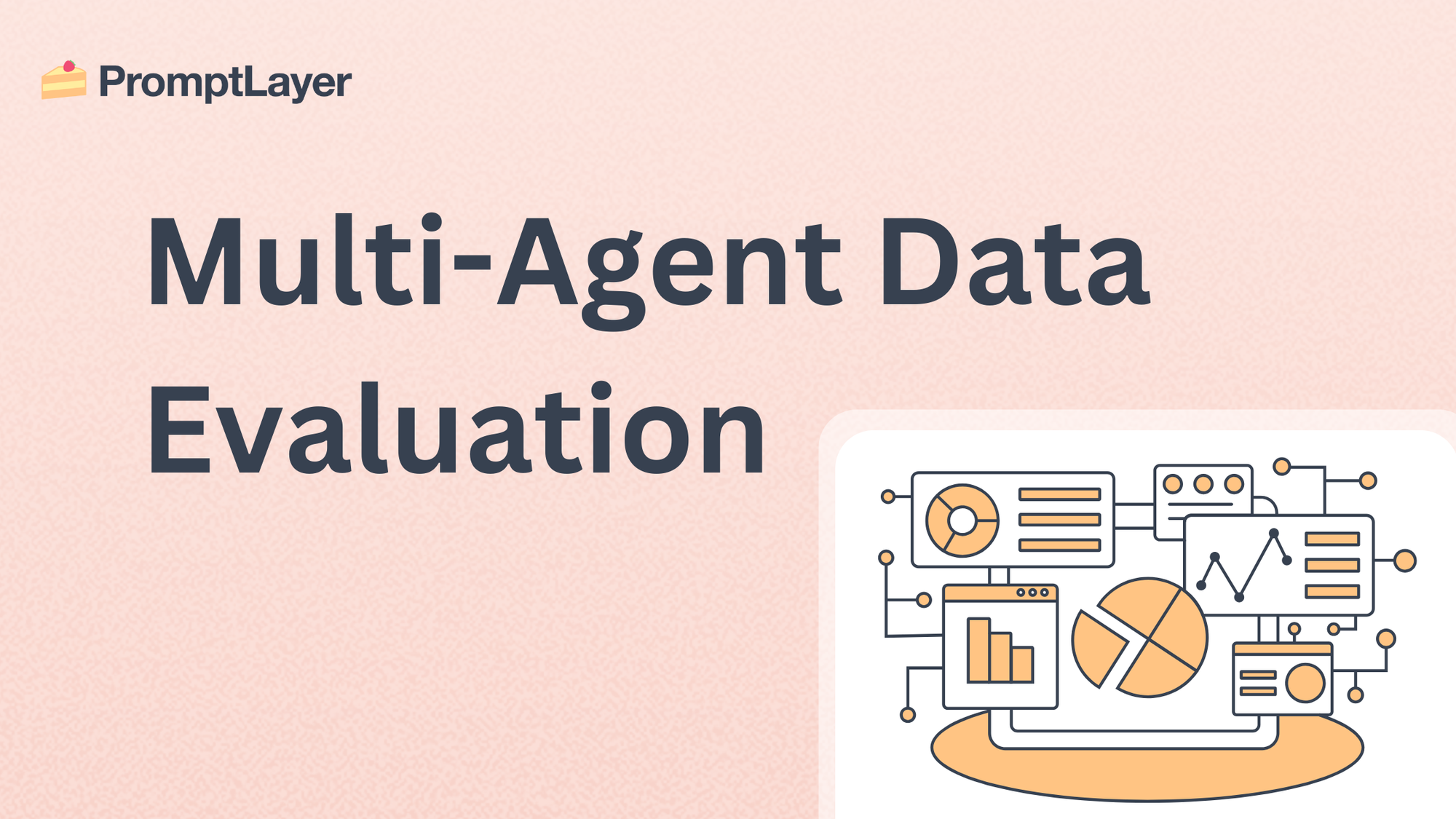Using Multi-Agent Frameworks for Enhanced Data Evaluation

Evaluating complex datasets—whether textual, numerical, or multimodal—is a challenge in data science.
Many evaluation metrics and human-annotation methods struggle to capture subtle quality issues, contextual relationships, or emerging patterns within large-scale and heterogeneous data. As a result, organizations often rely on time-consuming manual checks or oversimplified metrics that fail to deliver a nuanced understanding of data quality.
A recent framework, "MATEval: A Multi-Agent Discussion Framework for Advancing Open-Ended Text Evaluation", offers a new perspective that can be extended beyond text.
By leveraging multiple Large Language Models (LLMs) as autonomous agents, MATEval demonstrates how structured, iterative discussions among agents can produce more accurate and transparent evaluations. This multi-agent approach, originally designed for open-ended text analysis, can serve as a blueprint for more comprehensive data evaluation systems that transcend traditional boundaries.
From Text Evaluation to General Data Evaluation
The MATEval framework was originally conceived to improve the evaluation of AI-generated text, focusing on issues such as logical consistency, factual accuracy, and lexical appropriateness. Its fundamental principles, however, are not limited to textual domains. The following methodologies, adapted from MATEval, can form the building blocks of a generalized multi-agent data evaluation framework:
- Structured Agent Discussions:
MATEval orchestrates multiple LLM-based agents into a coherent panel of evaluators that debate, critique, and refine assessments through guided prompts. In a broader data evaluation context, this approach can coordinate a diverse set of specialized agents—each attuned to distinct data modalities, quality criteria, or domain rules. For example, agents trained on statistical methods might discuss numerical outliers in a dataset, while others scrutinize metadata for compliance with domain standards. Through structured turn-taking and consensus-building, the agents can collectively identify and remedy data issues more effectively than any single evaluator. - Self-Reflection for Improved Judgments:
In MATEval, agents are prompted to reconsider their past statements and incorporate feedback from their peers. This self-reflection enhances their ability to detect inconsistencies or overlooked problems. Applying this principle to general data evaluation encourages agents to iteratively refine their insights on a dataset’s anomalies, distributional shifts, or missing values. Over time, such reflection could lead to more stable and trustworthy evaluations, even as datasets grow more complex or evolve. - Chain-of-Thought Reasoning for Complex Data:
MATEval uses Chain-of-Thought (CoT) reasoning to break down open-ended text problems into manageable sub-questions. A similar strategy can help agents dissect intricate datasets into smaller tasks—such as identifying data integrity issues first, then checking feature relationships, and finally evaluating compliance with domain-specific standards. By compartmentalizing the evaluation process, CoT ensures that each data quality concern is addressed with logical rigor and greater transparency, ultimately resulting in more interpretable evaluation outputs. - Feedback Loops and Continuous Improvement:
A hallmark of the MATEval framework is its iterative feedback mechanism, where agents refine their evaluations over multiple discussion rounds. In a multi-agent data evaluation framework, this iterative loop can absorb newly acquired domain knowledge, updated rules, or emerging best practices. As data pipelines change, feedback loops ensure that the agent society remains adaptive—fine-tuning its evaluation criteria, identifying new sources of error, and continuously improving data integrity checks.
PromptLayer provides the tools to manage and monitor prompts with your whole team. Get started here.
Scaling MATEval’s Principles to as a Multi-Agent Framework for Data Evaluation
Applying MATEval’s multi-agent structure to non-textual data offers several advantages.
By dividing labor among diverse agents—some specialized in anomaly detection, others in semantic interpretation, or still others in compliance with regulatory standards—organizations can swiftly scale their evaluation processes. This decentralization also makes it easier to incorporate domain-specific knowledge, enabling agents to apply specialized evaluation criteria that mimic expert human judgment in fields like finance, healthcare, or climate science.
The result is a more robust and nuanced system that can operate at scale, parallelizing tasks and incorporating continuous learning. The discussions among agents can highlight subtle patterns, confirm or refute suspicious findings, and ultimately produce richer evaluation reports that integrate both qualitative insights and quantitative metrics.
Overcoming Challenges in Multi-Agent Systems
Despite its promise, extending MATEval’s techniques to broader data evaluation is not trivial. Potential challenges include:
- Agent Coordination: Designing clear communication protocols and role assignments is crucial to avoid confusion and ensure that agents converge on meaningful outcomes.
- Data Privacy and Security: As multiple agents access sensitive datasets, ensuring data privacy and adhering to compliance standards becomes a top priority.
- Human-AI Alignment: While agent discussions can approximate expert reasoning, human oversight remains essential. Calibration and interpretation of agent-derived insights must reflect human values, domain knowledge, and ethical considerations.
Final Thoughts
The MATEval framework offers a unique approach to evaluating open-ended text and lays a foundation for enhancing multi-agent frameworks in data evaluation.
By repurposing its core ideas—structured agent debates, reflective reasoning, chain-of-thought decomposition, and iterative feedback loops—we can craft flexible and scalable evaluation architectures capable of handling diverse datasets.
Such systems not only promise improved data quality and trustworthiness but also empower organizations to make better, faster, and more informed decisions.
In short, MATEval’s principles, extended beyond the realm of open-ended text, offer a roadmap for next-generation data evaluation frameworks.
About PromptLayer
PromptLayer is a prompt management system that helps you iterate on prompts faster — further speeding up the development cycle! Use their prompt CMS to update a prompt, run evaluations, and deploy it to production in minutes. Check them out here. 🍰



